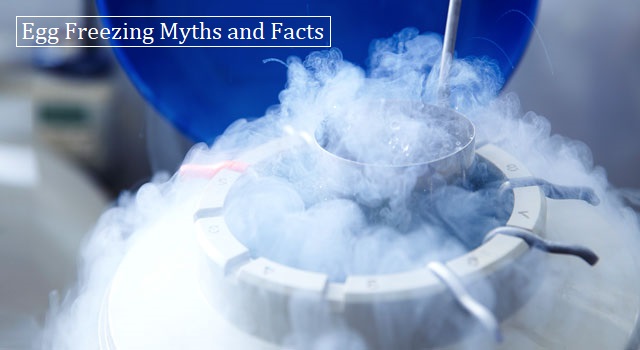For a long time egg freezing was given an experimental status as the success rates for egg freezing and subsequent pregnancy were not well defined. In 2012 the experimental label was removed from this procedure and it was introduced into practiced clinical medicine. There are some facts one needs to know about egg freezing before you go in for it
1. Egg freezing yields good results if the egg reserve is good. Egg reserve is defined as the quantity of eggs in a woman’s body. With age this reserve decreases until menopause when all the eggs finish
2. Not all follicles aspirated will have eggs. Some may be empty
3. Not all eggs retrieved are usable. Only the mature eggs, known as MII are frozen. Immature eggs cannot be injected with the sperm. The cohort may have 10-40 % immature eggs.
4. It is not necessary that on thawing all eggs will survive. Usually most centers have a good freezing program and post thaw survival of eggs is 95-100%
5. Once thawed the eggs are injected with the sperms a procedure known as ICSI treatment (Intracytoplasmic sperm injection). However after this all eggs may not fertilize. Some still remain unfertilized as the egg and sperm nucleus does not fuse.
6. From those fertilized all may not yield Grade A embryos and some may be a poor grade and hence will not yields a pregnancy. The grade of the embryo depends on the quality of the sperm, and egg and the laboratory conditions. When we transfer grade A embryos it is not necessary that the embryos will grow in the uterus to give a pregnancy
It is important to understand that IVF has a failure rate of 50% when 2 best grade embryos are transferred. Hence, it is advisable to do more than one cycle of egg retrieval to ensure that enough embryos are generated to give a pregnancy. Approximately one mature egg will have a 15% chance of pregnancy.
1. Myths: Egg freezing must be done when you reach late 30’s
Egg freezing must be done before 35 years of age as the egg quality deteriorates after that.
2. Myth: It is easy and doesn’t require time
It is time consuming as you have to consult the fertility specialist. Some blood tests need to be done. Subsequently injections are taken for 9-10 days. The size of follicle is monitored by an ultrasound every 3 days. The egg retrieval is done under general anesthesia by suctioning through an ultrasound guided needle introduced via the vagina. It takes 10 minutes.
3. Myth: All eggs will yield a pregnancy
As explained above all eggs do not yield a pregnancy. Generation of embryo is also dependent on lab quality. So only a laboratory with a good quality control should be chosen.



With this Blog many couples can come to know about the Freezing the egg and reserve egg. By reading this Blog many can come to know about this. Good information about eggs. Keep posting Blogs like this.